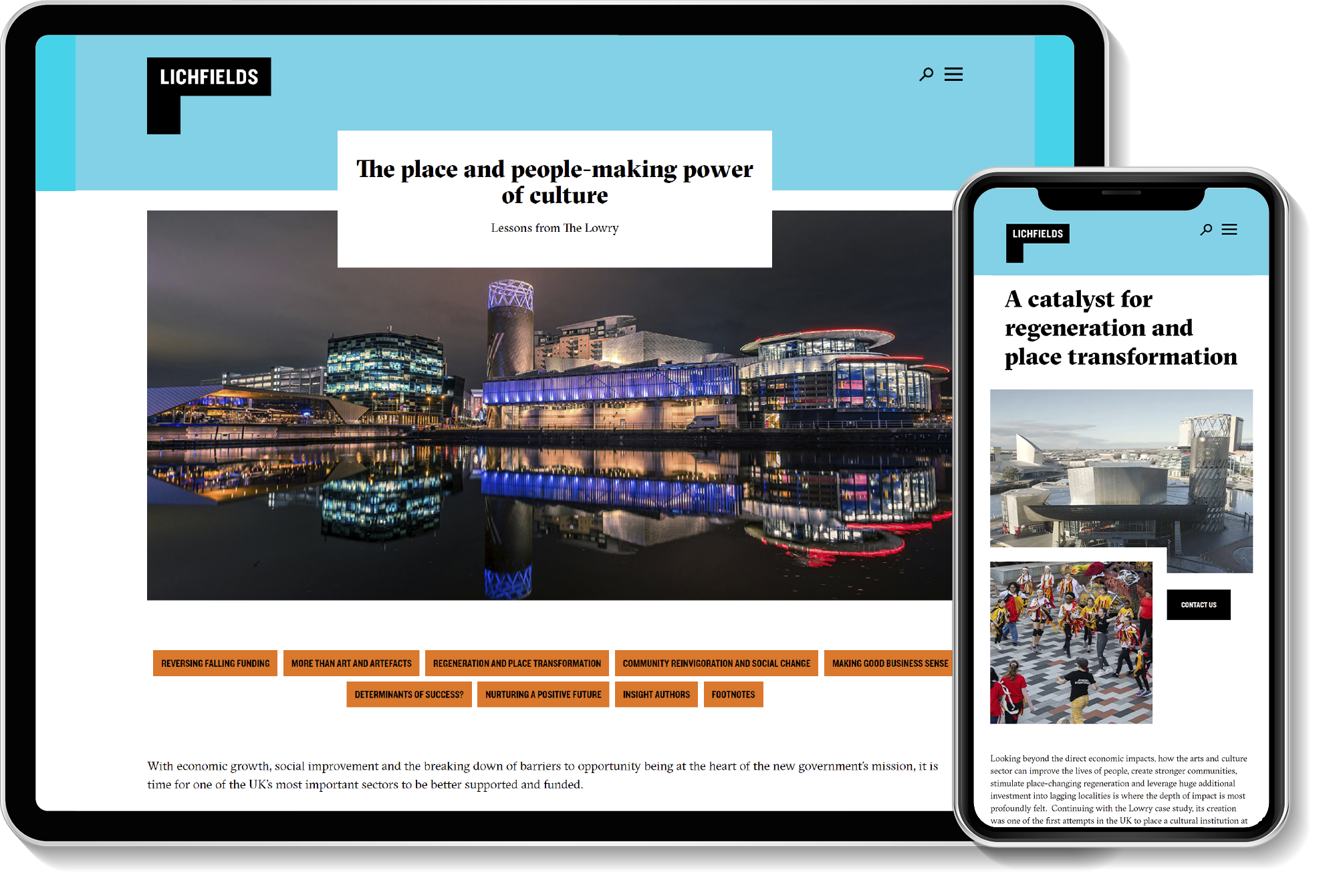Insights
The place and people-making power of culture
Lessons from The Lowry
With economic growth, social improvement and the breaking down of barriers to opportunity being at the heart of the new government’s mission, it is time for one of the UK’s most important sectors to be better supported and funded.
As part of its manifesto pledge, the Labour Party issued a sector plan for arts and culture in March 2024 which clearly acknowledged its economic importance and social value. Furthermore, the Party now in government rightfully made strong commitments to support the growth of the sector in the UK so that it reaches its full, globally significant economic potential whilst enabling communities to thrive and providing individuals access to life-changing opportunities. Thangam Debbonaire (then Shadow Secretary of Stage for Culture, Media and Sport now replaced by Lisa Nandy as Secretary of State) said in Labour’s sector plan that:
Labour in government will fire up the engines of our creative economy [by] backing the [cultural and creative] industries in which we are already world-leading to bring growth, good jobs and improved productivity to every part of the country.
We are committed to growing this industry, for its economic benefit and the enrichment of lives across the country.
We are committed to growing this industry, for its economic benefit and the enrichment of lives across the country.
There is a considerable and growing body of evidence demonstrating the place-making power of arts, culture and heritage facilities, and their exceptional strength in generating investment confidence in previously neglected localities, resulting in flourishing and contagious regeneration. Indeed, on top of reinforcing the extraordinary contributions these organisations make within their local communities, supporting the growth of the sector provides the opportunity to unlock substantial economic and social rewards up and down the country.
It would not be surprising to learn if Labour had paid attention to UK writer, radio and television broadcaster, Lord Melvyn Bragg who, during a speech in the House of Lords on 1 February 2024, strongly articulated the need for the UK to realise the full potential of the arts for economic and social transformation. Bragg opened the debate by saying:
Last year there were over three million job roles in the creative and cultural industries, and there could be more if we recognised and reached the full potential of what is still considered, too often, to be the cherry on the cake.
The arts are not the cherry on the cake – they are the cake.
The arts are not the cherry on the cake – they are the cake.
Drawing on The Lowry in Greater Manchester as an example case study, we explore if there was ever a panacea for integrating economic growth, social improvement and place-making power through a single investment, one would be hard pressed to find a more compelling example than that of well-planned and soundly delivered arts, culture and heritage assets.
Sectors
Services

Download
Read the full document


